1. Background
The conditions of proof for VAT exemptions are regularly linked in the VAT Directive with flexibility for the implementation by the Member States. The Member States shall lay down the regulations for VAT exemptions in such a way that they ensure the correct and straightforward application of these exemptions and with a view to preventing any possible evasion, avoidance or abuse (cf. Art. 131 of the VAT Directive). The Member States are required to transpose the stipulated VAT exemptions in Title IX “Exemptions” of the VAT Directive based on this principle into national law. In its judgment of 07.09.2023 – C-461/21, SC Cartrans Preda SRL, the ECJ had the opportunity to review the requirements for VAT exemption in terms of the Romanian legislator’s granting of the VAT exemption for transport services (cf. Art. 144 in conjunction with Art. 86 (1) (b) of the VAT Directive) related to importation.
2. Facts of the case
The plaintiff, SC Cartrans Preda SRL, is a logistics service provider established in Romania, which provides services for the carriage of goods. It transported goods for a customer from the port of Rotterdam (Netherlands), where the goods had entered the European Union, to Cluj-Napoca (Romania). The plaintiff did not charge any VAT for this transport of goods in application of the VAT exemption for transport services relating to goods imported into the territory of a Member State of the European Union (cf. Article 294(1)(d) of the Romanian Tax Code). In order to prove the conditions for the VAT exemption, Romanian VAT law requires the provision of specific documents, all of which must be retained (Art. 294(1)(d) of the Romanian Tax Code). However, the plaintiff only held the CMR bill of landing, the MRN, the accompanying transit document, the invoice and the contract of carriage as proof of the transport. Following a tax audit, the Romanian tax administration refused the VAT exemption for the transport service, as the plaintiff was unable to furnish the supporting documents required by Romanian VAT law. The plaintiff argued that it had provided adequate proof on the basis of the documents submitted. Furthermore, the plaintiff argued that the inclusion of the transport costs in the taxable amount for the import VAT already resulted from the declaration of the goods for free circulation.
3. Decision of the ECJ
In its judgment, the ECJ states that only two material conditions must be met for the VAT exemption for transport services relating to the importation of goods as laid down in Art. 144 of the VAT Directive: Firstly, the supply must be related to the importation of the goods in question. Secondly, the value of this supply must be included in the taxable amount of the import VAT of the goods (cf. Art. 86 (1) (a) and (b) of the VAT Directive).
According to the ECJ judgment, the conditions for the VAT exemption must be demonstrated by means of appropriate evidence. With reference to the decision in the Cartrans Spedition case from 2018 (ECJ judgment of 08.11.2018, C-495/17), the ECJ now also applies the principles discussed therein on the handling of evidence requirements for VAT exemption in the case of export supplies of goods to transport services in connection with importation (cf. para. 35 of the judgment). Nonetheless, the ECJ’s ruling explicitly states that proof of registration of the importation of goods (and thus the MRN) alone, is not sufficient to prove the inclusion in the taxable amount of the importation (cf. para. 34 of the ruling). However, Member States cannot only allow evidence to be given using certain documents. Instead, the documents of the importer of the goods submitted by the plaintiff must also be taken into account (CMR bill of lading, transit accompanying document, invoice and contract of carriage). In this judgment, the ECJ confirms its previous jurisprudence, according to which the VAT exemption must be granted, when the substantive legal requirements are met. The existence of a certain formal proof may not be decisive. According to the judgement, the VAT exemption can only be denied, if it is not possible to verify the connection between the transport service and the importation of goods, as well as not feasible to include the transport costs in the taxable amount for import VAT on the basis of the supporting documents (para. 51 of the judgment).
4. Assessment
The ECJ remains true to its line of reasoning on the importance of formal, legal evidence, and upholds the concept of “substance over form”. The principle of neutrality requires that VAT exemptions be granted if the substantive legal requirements are met. The existence of a certain formal proof – even if required by national law – cannot be the decisive factor.
Nevertheless, it is advisable to consider national legal requirements, in detail, when providing evidence. In practice, this will generally lead to the granting of the VAT exemption without any significant resistance from the national tax authorities and naturally also leads to the avoidance of costly legal disputes.
The above information was kindly provided by KMLZ (Germany). If you need further information, please contact Christian Salder at: [email protected].

